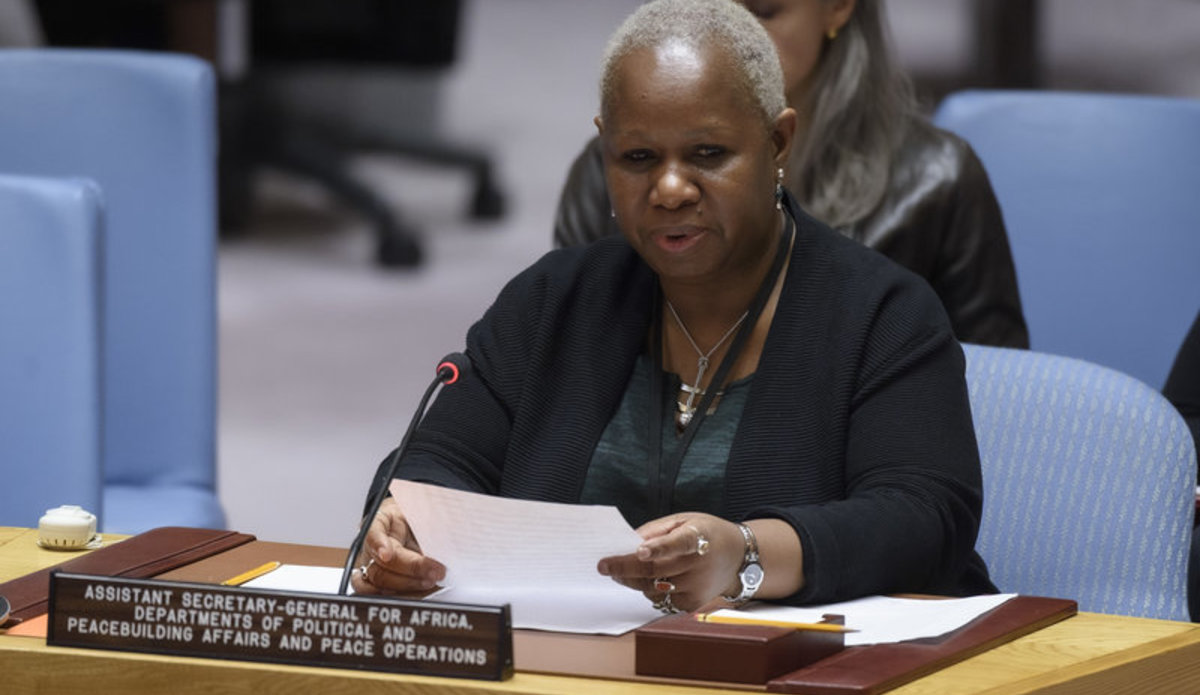Mr. President, Members of the Council,
I begin with the tragic news of the car bomb explosion that took place in Benghazi today. There were a number of casualties, including UN staff working and living in Benghazi. We are now in a position to confirm that three UN staff members were among the fatalities, and three others were injured and are now being treated. Scores of Libyans are also among the injured.
This horrific attack came at a time when people in Benghazi were preparing for the Eid al-Adha holiday, in an area supposedly under full security control of General Haftar’s Libyan National Army forces. It serves to highlight the continued danger of terrorism across the country, and the limits of effective security control in the absence of one government and one military and police force working across the country. It also confirms that this latest bout of hostilities is creating a vacuum easily exploited by radical elements that strive on chaos and violence. The UN does not intend to evacuate from Libya. For the foreseeable future our place remains alongside the Libyan people, like our brave colleagues who gave their lives today.
Mr. President.
There are other significant developments today in Libya. It is a positive development that both Prime Minister Serraj and the General Haftar’s Libyan National Army forces have agreed to the Special Representative of the Secretary-General’s 29 July call for a truce for the period of Eid al Adha to begin this evening. I can only hope that both sides will genuinely abide, in good faith, to their public commitment. Senseless and absurd violence needs to stop.
We have made it clear, on several occasions, in front of this same audience, that no party can emerge as the winner from the current conflict. Today is clear evidence that there are already many losers – the majority of whom are innocent Libyan civilians. This message has resonated both with Libyans directly party to the conflict and to those international and regional stakeholders in Libya, who have seen that after more than four months of conflict there is no quick military win capable of resolving the complex situation on the ground. Terrorism cannot be effectively fought under the circumstances on the ground. The tragedy of illegal migration cannot be adequately addressed. And Libya’s substantial economic potential cannot be realised for the benefit of the Libyan people, or as a stabilising influence in the region and beyond.
In the days leading up to the truce, UNSMIL worked hard to build confidence between the parties. Proposed immediate humanitarian measures including the exchange of prisoners, the exchange of mortal remains and visits to prisoners or phone calls can rebuild contacts and lower tensions to enable the truce to take place. We urge the parties to seize this opportunity. This is the first step in returning to a political process. It is essential that this truce is deepened and strengthened through these important confidence-building measures and that the parties move quickly forward to an international meeting to re-commit to a roadmap to transition the country from conflict back to the peaceful, democratic process. Consistent with the Special Representative’s initiative, such a meeting would then be followed by a meeting of Libyans themselves.
This Council’s statement, supporting the call for a truce, was certainly an important element in demonstrating the renewed unity of the international community and its faith in the Special Representative and commitment to his three-point initiative to end the conflict. The public and private support of key member states has also played a considerable role in building the credibility and necessity for the truce that is now about to start.
Mr. President,
The situation on the ground necessitates a truce across the country. The continued brutal descent of southern Libya into chaos and inter-communal feuds is a disturbing harbinger of what may ensue should the wider conflict persist. Simmering inter-communal tensions between Tebu and Ahali groups in Murzuq, exacerbated by countrywide political polarization, took a turn for the worse. On 4 August, three LNA airstrikes against Tebu elements, including a number of civilians, resulted in approximately 45 fatalities.Murzuq suffers from the same environment as much of Libya: an absence of state institutions manifested in an absence of services, an almost total lack of governance, a lack of impartial security forces and an absence of hope.
It is a tragedy that so many have died in a town where there are deep-rooted grievances, that in the current circumstances risk taking on a national dimension. It is essential that the intra-communal violence in Murzuq not spread to other towns in the South. I therefore ask the Council to express its emphatic support to ensure that the truce takes place not only in areas under the clear control of specific security forces but also in areas where there is no clear security actor.
The United Nations family has been active in trying to address the urgent humanitarian priorities in Murzuq, through the provision of safe passage for the injured, and through emergency supplies of food, shelter and medicine.
Mr. President,
I would like to conclude by raising an issue that the Special Representative and many member states have been following closely: the fate of abducted lawmaker Siham Sergawa. Ms. Sergewa was abducted from her home in Benghazi on 17 July and has not been heard from since. This unacceptable attack on a female lawmaker constitutes a serious crime against women and the prospect for women playing a role in political life in Libya. We are grateful to those member states that have continued to follow the case closely and reiterate our demand that authorities in Benghazi assume their responsibility and find those responsible for this cowardly abduction of a female parliamentarian in front of her family.
Thank you, Mr. President.

